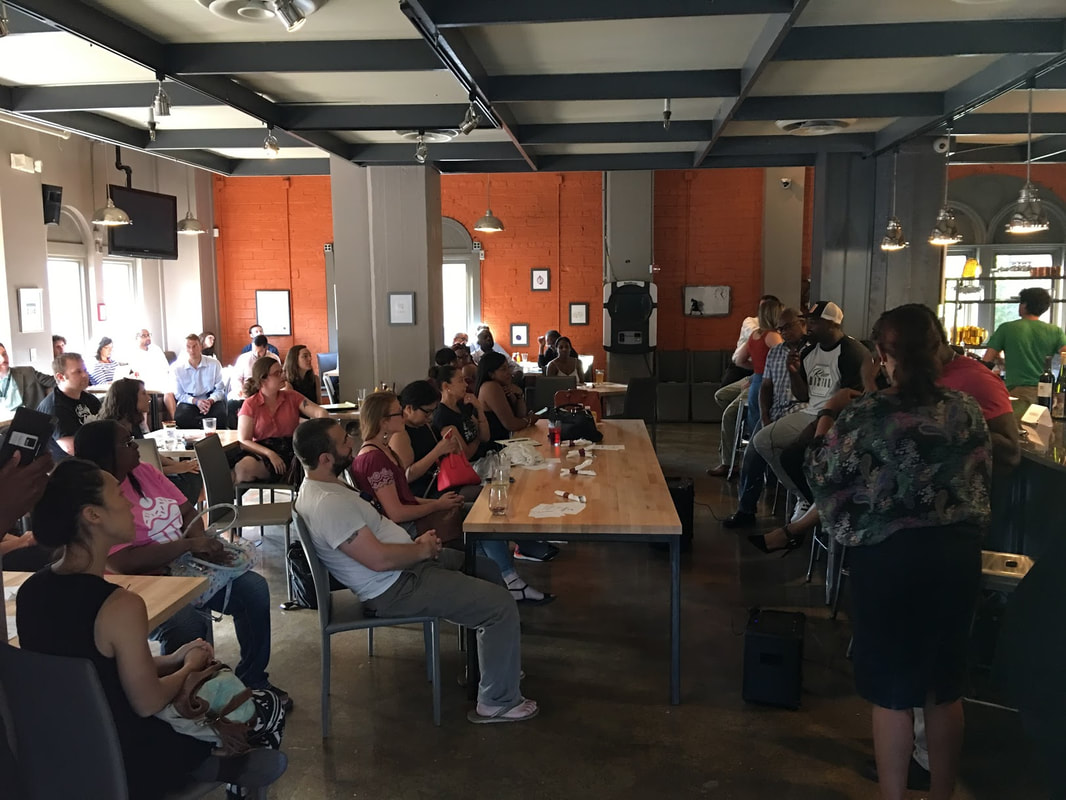“Detroit is big enough to matter in the world and small enough for you to matter in it”. That is the phrase that captivated my interest when I heard about DukeEngage Detroit. When I first started working at Build Institute, I was excited to try to make some positive change for the city. Even though I am obviously not impacting the whole city, I believe that Lúcia and I are making small but purposeful work for the community.
The main task we are focusing on is the economic impact report which measures and summaries the direct and indirect impact of Build Institute in the Detroit community. We are gathering valuable data through an alumni survey where we ask graduates who have gone through the business classes to evaluate their experience at Build. For the direct impact of Build, we are for example looking at the revenue made by each new company or their number of employees. For the indirect impact of Build, we are for instance looking at the number of Build graduates’ clients per month. Last year, the DukeEngage interns realized a similar report but because of time constraints, they were unable to finish it. Our goal is to provide a short but useful report that Build can use in two ways. The first one is as marketing tool for potential Build Institute clients. Some statistics such as the high success rates should motivate interested people to sign up for the classes. The second way, is to provide convincing material to attract donations and grants. In addition, we hope that by interacting with old alumni we are making them closer with Build again. This might make them interact with and help more recent graduates.
We are also trying to analyze the alumni survey data and see what the graduates would like the most that Build is not currently offering. We have for example found that the alumni would benefit for a marketing class. We then wanted to dive into different options for a marketing class. Build could, for example, partner up with an online education website or create their own content that would be thought in a class. Lúcia and I understand that we are not going make Build take any decisions but we want to be as helpful as possible by laying down multiple options for such a class. The leadership team at Build can then decide using their experience what is best for the organization.
Finally, we are trying to be as helpful as possible by doing small, time-consuming tasks whenever needed. These are not tasks that are changing the entire company but tasks that allow the leadership team to have more time on their hands to focus on what matters the most for the company and make sure that all entrepreneurs can turn their ideas into successful businesses. By doing our best to make Build Institute as efficient and successful as possible, we hope that the Detroit entrepreneurs can continue to add social and economic wealth to this wonderful city.
Picture: Build Institute's Open City. A free event where anyone interested about entrepreneurship can come learn about a particular subject.
The main task we are focusing on is the economic impact report which measures and summaries the direct and indirect impact of Build Institute in the Detroit community. We are gathering valuable data through an alumni survey where we ask graduates who have gone through the business classes to evaluate their experience at Build. For the direct impact of Build, we are for example looking at the revenue made by each new company or their number of employees. For the indirect impact of Build, we are for instance looking at the number of Build graduates’ clients per month. Last year, the DukeEngage interns realized a similar report but because of time constraints, they were unable to finish it. Our goal is to provide a short but useful report that Build can use in two ways. The first one is as marketing tool for potential Build Institute clients. Some statistics such as the high success rates should motivate interested people to sign up for the classes. The second way, is to provide convincing material to attract donations and grants. In addition, we hope that by interacting with old alumni we are making them closer with Build again. This might make them interact with and help more recent graduates.
We are also trying to analyze the alumni survey data and see what the graduates would like the most that Build is not currently offering. We have for example found that the alumni would benefit for a marketing class. We then wanted to dive into different options for a marketing class. Build could, for example, partner up with an online education website or create their own content that would be thought in a class. Lúcia and I understand that we are not going make Build take any decisions but we want to be as helpful as possible by laying down multiple options for such a class. The leadership team at Build can then decide using their experience what is best for the organization.
Finally, we are trying to be as helpful as possible by doing small, time-consuming tasks whenever needed. These are not tasks that are changing the entire company but tasks that allow the leadership team to have more time on their hands to focus on what matters the most for the company and make sure that all entrepreneurs can turn their ideas into successful businesses. By doing our best to make Build Institute as efficient and successful as possible, we hope that the Detroit entrepreneurs can continue to add social and economic wealth to this wonderful city.
Picture: Build Institute's Open City. A free event where anyone interested about entrepreneurship can come learn about a particular subject.

 RSS Feed
RSS Feed
